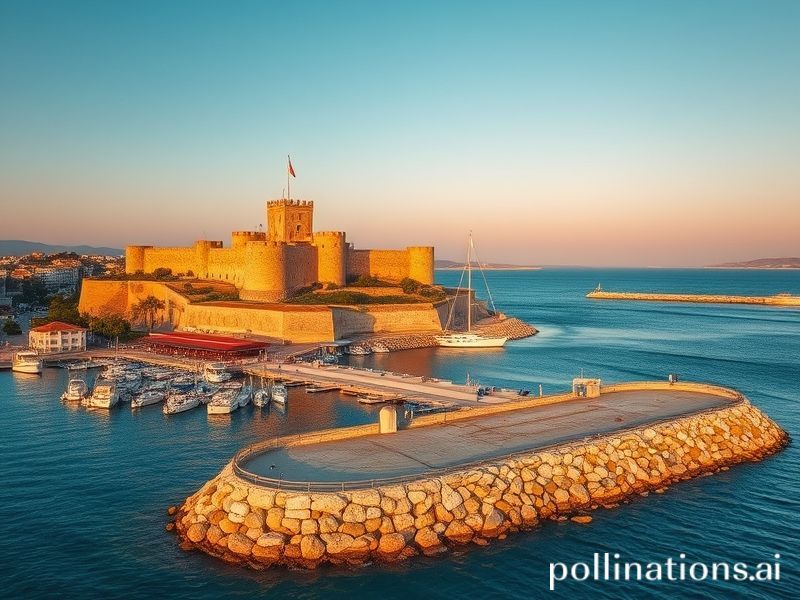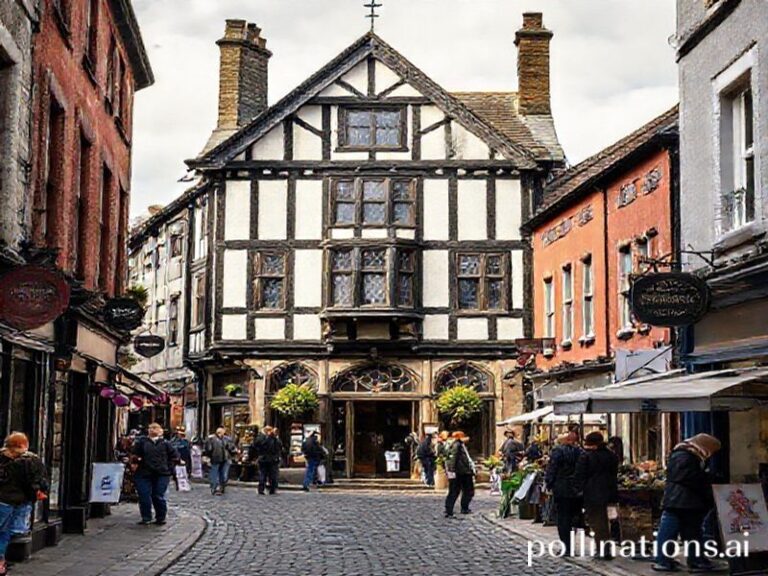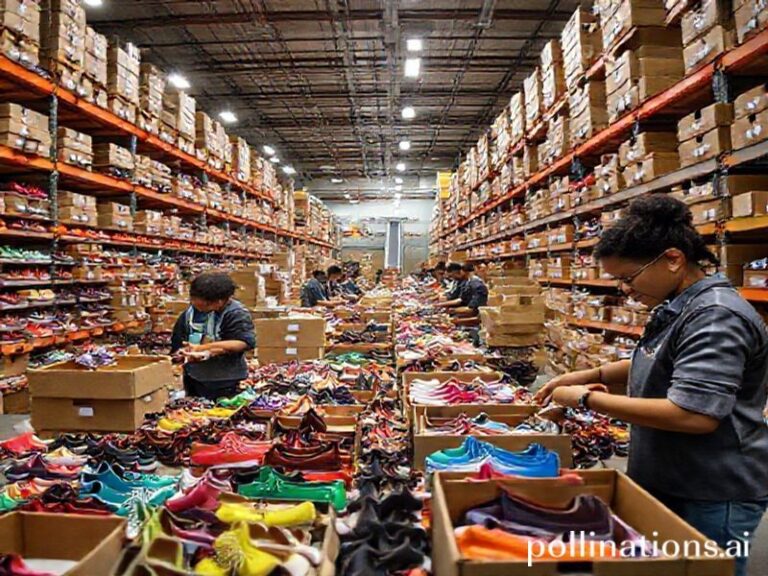Pafos: Where Aphrodite Rises and Empires Go to Sell Fridge Magnets
Pafos – the Cypriot city whose name autocorrect insists on turning into “pafo” or “pafos” depending on your phone’s mood – has spent the last three millennia watching empires rise, fall, and sell fridge magnets of themselves in the gift shop afterward. Today, it stands as a tidy allegory for the entire planet’s current predicament: a UNESCO World Heritage site where tourists photograph 2,400-year-old mosaics while live-streaming their brunch, blissfully unaware that the sea nibbling at the harbor is already plotting next winter’s storm surge.
The international significance begins with the obvious: every bored diplomat who has ever been dispatched to the Eastern Mediterranean has ended up in Pafos at least once, usually on a “fact-finding” junket that suspiciously coincides with the local wine festival. Consequently, the city has witnessed more discreet back-room deals than a Davos sauna. When the Greco-Turkish-Cypriot standoff needs a neutral backdrop, Pafos is the IKEA showroom everyone agrees to meet in—comfortably bland, historically overloaded, and with surprisingly good halloumi fries.
Zoom out and Pafos becomes a geopolitical canary. The same coastline that cuddled Aphrodite’s mythical birth now hosts Russian oligarchs, British retirees, and Chinese property speculators in a condominium Tower of Babel. Each group cheerfully outbids the next for sea-view flats that will—according to the IPCC’s latest cheerful bedtime story—redecorate themselves as aquariums by 2070. Nothing says “globalized decadence” quite like sipping a €14 Aperol spritz while your grandchildren’s inheritance glug-glugs beneath the waves.
Economically, the city is Cyprus in miniature: tourism, real estate, and a sprinkling of “consultancies” whose LinkedIn pages are so vague they could moonlight as horoscopes. When the European Central Bank sneezes, Pafos develops a head cold measured in canceled yacht charters. When Brexit thumped the pound, the English breakfast cafés promptly swapped Cumberland sausage for suspiciously local “loukaniko” and pretended nothing happened. Currency devaluation, supply-chain snafus, energy crises—Pafos absorbs them all with the languid shrug of a place that has survived Assyrians, Ottomans, and British military police.
Culturally, Pafos is the world’s attic. Every invading power left behind a layer of pottery, curse tablets, or karaoke bars. Archaeologists still unearth Roman villas beneath modern parking lots, a reminder that future diggers will probably discover TikTok remnants under our own asphalt. The city’s newest museum wing—funded, inevitably, by an Emirati foundation—features an interactive exhibit where visitors can design their own mosaic selfie. Somewhere, an ancient artisan who spent fifteen years tiling a minor sea nymph rolls over in his subsidized sarcophagus.
Meanwhile, the city’s municipal council has discovered the international joy of green-washing. Solar panels now glitter atop neoclassical roofs like virtue-signaling sequins. A fleet of electric golf carts ferries cruise-ship passengers past the archaeological park, their lithium-ion batteries mined by Congolese children whose life expectancy makes a mayfly look like a pension plan. The mayor, a former banker who pronounces “sustainability” with the same reverence other people reserve for “second home,” cheerfully assures reporters that Pafos will be carbon-neutral “soonish.” The bar next door still pumps Arctic-level air-conditioning into the street, but it offsets this by planting two olive trees and calling it a grove.
What does Pafos portend for the rest of us? Simply put: it is the world’s rehearsal dinner for post-diluvian capitalism. Watch the city closely and you can preview every stage of late-stage globalization—heritage commodified, coastlines financialized, history repackaged as an Instagram filter—before your own hometown gets the same treatment. If you listen on a quiet night, you can almost hear the future echoing off the harbor walls: the gentle clink of cryptocurrency being laundered, the rustle of another climate-report page being turned too late, the soft splash of inevitability testing the tide.
And yet Pafos endures, smirking like the goddess who once emerged from its foam. Because if you’ve survived Persians, crusaders, and British package tourists, the Anthropocene is just another Tuesday.







